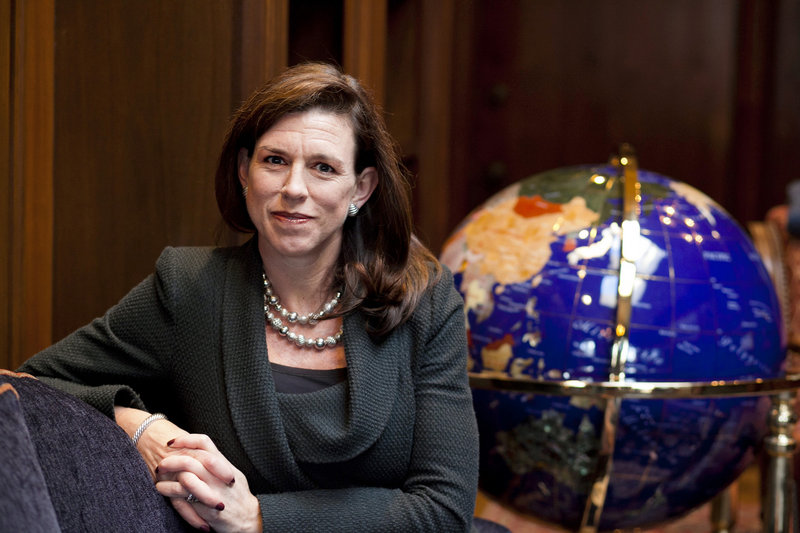WASHINGTON – When Kristin Forbes sought tenure at the Massachusetts Institute of Technology early last decade, some colleagues said her research focus on financial contagion led to a dead end. Her reaction: Full speed ahead.
Forbes worked to safeguard global financial stability with then-U.S. Treasury Undersecretary John Taylor, became the youngest member ever on the White House Council of Economic Advisers and eventually won tenure at MIT. In August she presented the opening paper at the Federal Reserve’s annual symposium in Jackson Hole, Wyo.
“Kristin is one of the leaders in the empirical analysis of contagion,” said Roberto Rigobon, who, like Forbes, is a professor of economics at MIT’s Sloan School of Management in Cambridge, Mass., and has co-written research with her on the topic. “Her papers are a tour de force for anyone interested in measuring” its “importance, existence and extent.”
Forbes, 42, says she still sees complacency over the risk that financial turmoil will spread beyond a single country, even with Europe’s struggle to curb its sovereign-debt crisis. Regulators aren’t doing enough to bolster preventive oversight, she said in an interview.
“Recently you’ve seen some softening of some of the regulatory requirements that are being talked about and some stepping back from some of the proposals,” Forbes said.
“There’s a trade-off obviously. In the middle of the crisis, having stricter capital requirements might delay a recovery, but it’s critically important for the long-term stability.”
Officials today may be tempted to bolster bank profitability by relaxing rules such as stress-test thresholds or by expanding the categories of assets that qualify toward liquidity buffers, Forbes said in the research she presented at Jackson Hole. Such loosening may backfire and “increase a country’s vulnerability to contagion.”
While requiring more capital may reduce the availability of credit, it also could offer nations “substantial benefits” by buffering against international panics. Tighter rules on bank reserves would reduce risks, acting on Forbes’s finding that “countries with more-leveraged banking systems are significantly more vulnerable.”
Forbes’ paper laid out the main pathways for the spread of a crisis, including trade, banks and financial institutions, along with investors who may be forced by losses in one country to sell assets in others. She also identified as a cause “wake-up calls” — when new information about a nation’s weaknesses compel a recalibration of risk beyond its borders.
Forbes said her research is especially relevant for the euro area today, and her Jackson Hole paper proposed prescriptions to alleviate that continent’s crisis.
Europe’s focus on sharing liabilities through the European Central Bank, European Stability Mechanism and European Financial Stability Facility may increase contagion risks as investors begin to question the solvency of countries providing bailout funds, she said.
Also, European policymakers confronting the risk of bank runs without a clear “lender of last resort” need to create a deposit-insurance system to “restore confidence” that funds will be accessible in the future, she wrote in her paper.
“Someone other than the Greek government needs to guarantee bank deposits in Greek banks,” she said in the interview.
“We’re in a lull right now, but it doesn’t mean we’re out of the storm,” Forbes said. “My sense is it’s not over. There’s such tremendous risks in so many countries.”
Copy the Story Link
Send questions/comments to the editors.



Success. Please wait for the page to reload. If the page does not reload within 5 seconds, please refresh the page.
Enter your email and password to access comments.
Hi, to comment on stories you must . This profile is in addition to your subscription and website login.
Already have a commenting profile? .
Invalid username/password.
Please check your email to confirm and complete your registration.
Only subscribers are eligible to post comments. Please subscribe or login first for digital access. Here’s why.
Use the form below to reset your password. When you've submitted your account email, we will send an email with a reset code.